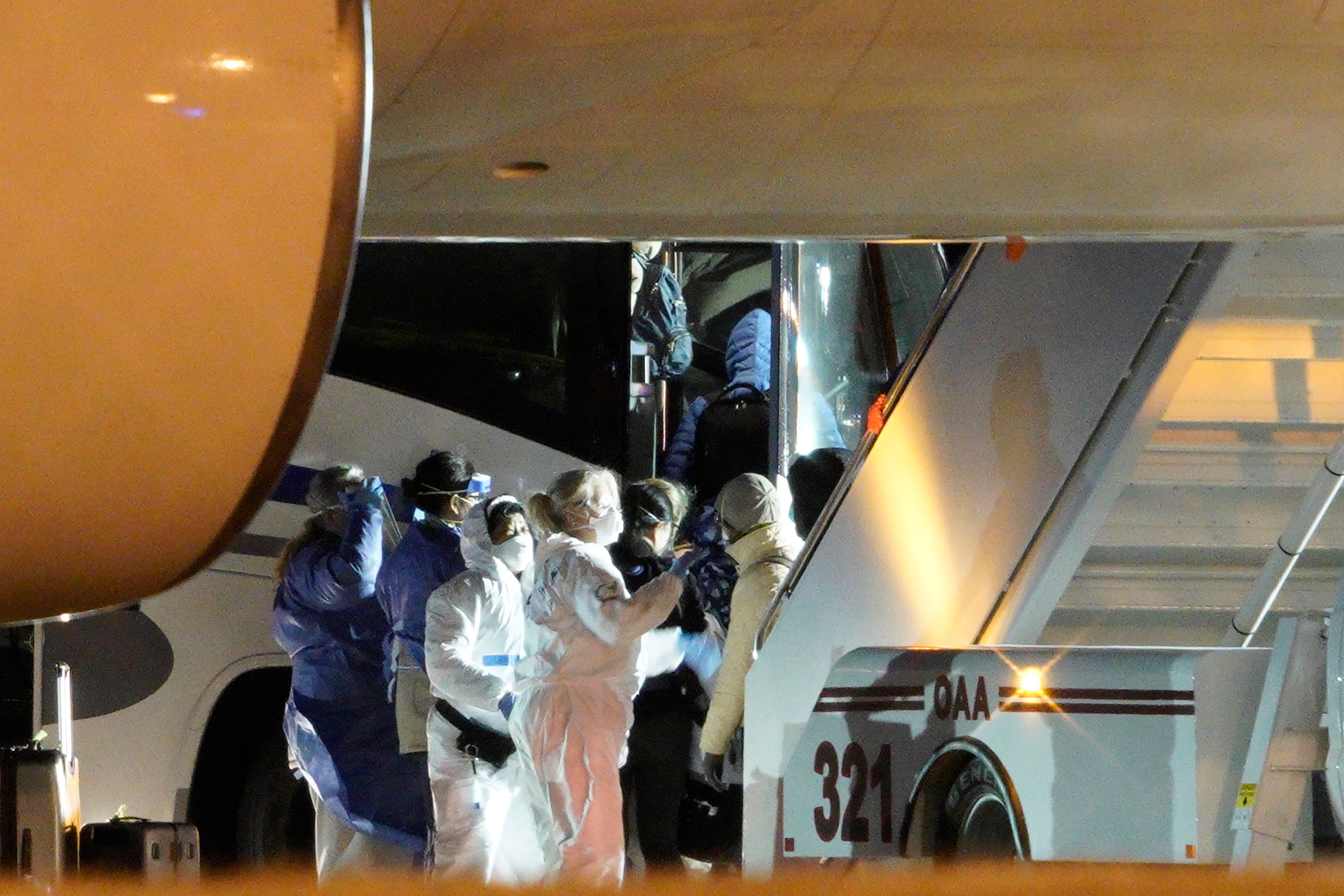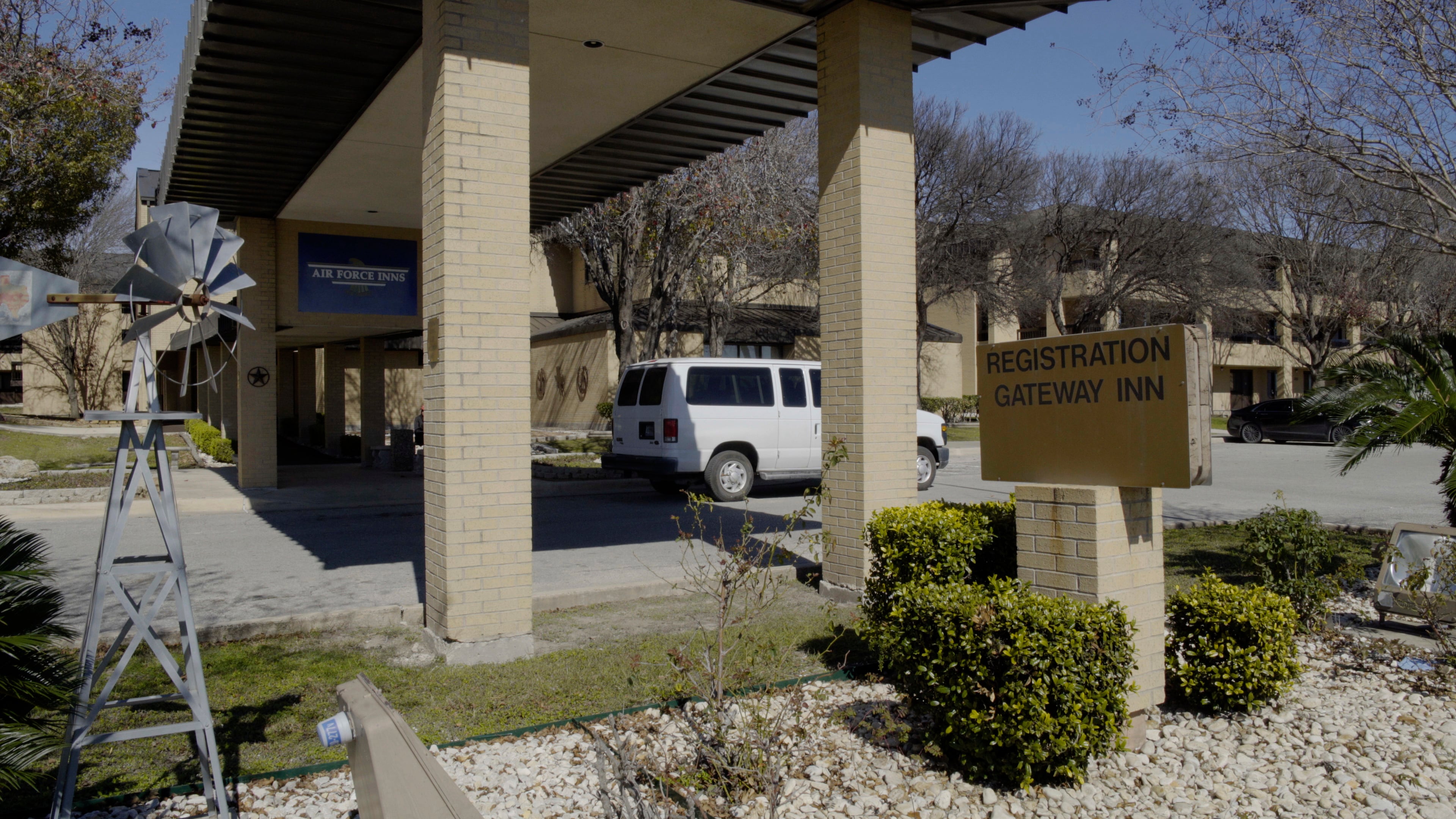Children of U.S. military personnel living in South Korea, Japan, Italy, Bahrain and elsewhere are beginning to experience the disruption of routine caused by the burgeoning worldwide COVID-19 outbreak.
In Asia, Europe and the Middle East, 15 Department of Defense Education Activity schools are closed and extracurricular activities canceled, affecting roughly 7,500 students.
The decisions to shutter the facilities through at least Friday were made out of an “abundance of caution” to prevent exposure, according to a letter sent to parents of students in the Department of Defense Education Activity Pacific Region.
Although officials deemed the immediate risk to the school population to be low, they made “the difficult decision to cancel” several events involving DoDEA schools through Feb. 28 such as basketball tournaments, a cheerleading competition, theater performances and a culinary arts event, Pacific Region Director Lois Rapp said.
“This is an evolving situation and the well-being of our students and families is our top priority,” Rapp wrote to parents. “We will continue to work closely with the military commands to ensure we are taking all prudent measures to mitigate the risks to our students and employees.”
The closed schools include those at Osan Air Base, U.S. Army Garrison Humphreys, and Daegu in South Korea.
RELATED

At Aviano Air Base and U.S. Army Garrison Italy, Vicenza, DoDEA schools also are closed and events canceled through at least Feb. 28.
The region of Lombardy, located about 100 miles west of Vicenza, has seen more than 300 confirmed cases and nearly a dozen fatalities from the novel coronavirus. Veneto, where Vicenza is located, also has experienced several cases.
At Vicenza, many base service and recreational facilities, including the Child Development Center, youth services, fitness centers, the base theater and worship services, also are closed.
“The garrison is putting itself in a position to adjust as the situation changes around Italy,” garrison commander Col. Daniel Vogel said in a release.
The Army garrison at Camp Zama, Japan, also isn’t taking any chances on exposing service members or dependents to the virus. It canceled its 2020 Cherry Blossom Festival, scheduled for the weekend of March. 29.
"While we regret not being able to host the event and share in this wonderful part of Japanese culture this year, we are focused on the health and safety of both our on-post and local neighboring communities,” wrote U.S. Army Garrison Japan Commander Col. Thomas R. Matelski in a statement on the installation’s Facebook page. “We look forward to hosting this event next year.”
In Bahrain, children attending DoDEA schools also are home at least through the end of the week. Bahrain has reported 23 cases of coronavirus, mainly coming from Iran, where an outbreak has infected nearly 100 people and killed 15.
“We are working closely with our military and host nation partners to closely monitor the situation. All decisions will be made with the health of our staff, students and community in mind,” wrote Bahrain Schools principals Shana Seawright and Penelope Miller-Smith.
The closures come as the Centers for Disease Control and Prevention stepped up warnings Tuesday on the spread of the virus in the continental U.S., saying Americans should begin preparing for disruptions to daily life that could be severe.
This includes planning for school closures and thinking ahead to continue studies and work through telecommunications, being prepared to use telemedicine services and preparing for self-isolation or quarantine, said Dr. Nancy Messonnier, director of CDC’s National Center for Immunization and Respiratory Diseases.
During a briefing with reporters, Messonnier said the agency now expects COVID-19 to spread through communities in the U.S., adding that the disease expansion is approaching pandemic status.
“It’s not so much a question of if this will happen anymore but rather more when this will happen and how many people in this country will have severe illness,” Messonnier warned.
The new coronavirus was first detected in Wuhan, China, in late December. It has sickened at least 77,000 cases worldwide and been blamed for 2,700 deaths.
In the U.S. there have been 57 confirmed cases as of Tuesday: 14 cases among people who returned from travel to China or passed the illness to a close contact, three in those evacuated from China by the U.S. State Department and 40 cases among those evacuated from quarantine on the Diamond Princess cruise ship.
RELATED

There have been no American deaths nor has the virus spread outside the confines of isolation or quarantine.
But Messonnier said threat of community transmission is growing as more travelers are exposed in places outside China.
“We don’t exactly know when this is going to happen … that’s why we are asking folks in every sector as well as people in their families to begin preparing for this,” she said.
According to Messonnier, the CDC is evaluating data on what steps could be taken to minimize the spread of contagion, including school closures and event cancellations, voluntary self-quarantines and effective cleaning methods.
Messonnier said she told her children over breakfast that they will need to begin preparing for an escalated outbreak. She recommended that parents contact their schools to determine what steps will be taken to prepare for extended closures.
"I contacted my local school superintendent this morning with exactly those questions," Messonnier said. "All of these questions can help you be better prepared for what might happen."
DoDEA spokesman William Griffin said the activity has been “forward-leaning” in readying for a pandemic, beginning at the outbreak’s start by establishing a reference and resource web site on the virus for parents and students.
DoDEA also has been encouraging administrators and teachers to develop plans for continuing lessons through closures, using email, shared drives and existing computer applications to assign work and remain in touch.
“We are hoping to resume normal school functions as soon as its possible, but we’ve made plans in the event that students are required to stay home for a longer period of time.” Griffin said. “The decision to close schools is never an easy one.”
No U.S. personnel have been diagnosed with COVID-19. A 61-year-old widow of a military retiree residing in Daegu is the only confirmed case associated with the Department of Defense.
Patricia Kime is a senior writer covering military and veterans health care, medicine and personnel issues.





